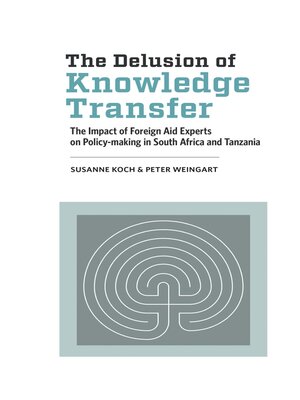Koch
ebook ∣ The Delusion of Knowledge Transfer: The Impact of Foreign Aid Experts on Policy-making in South Africa and Tanzania
By Peter Weingart

Sign up to save your library
With an OverDrive account, you can save your favorite libraries for at-a-glance information about availability. Find out more about OverDrive accounts.
Find this title in Libby, the library reading app by OverDrive.



Search for a digital library with this title
Title found at these libraries:
| Library Name | Distance |
|---|---|
| Loading... |
With the rise of the ëknowledge for developmentí paradigm, expert advice has become a prime instrument of foreign aid. At the same time, it has been object of repeated criticism: the chronic failure of ëtechnical assistanceí ñ a notion under which advice is commonly subsumed ñ has been documented in a host of studies. Nonetheless, international organisations continue to send advisors, promising to increase the ëeffectivenessí of expert support if their technocratic recommendations are taken up. This book reveals fundamental problems of expert advice in the context of aid that concern issues of power and legitimacy rather than merely flaws of implementation. Based on empirical evidence from South Africa and Tanzania, the authors show that aid-related advisory processes are inevitably obstructed by colliding interests, political pressures and hierarchical relations that impede knowledge transfer and mutual learning. As a result, recipient governments find themselves caught in a perpetual cycle of dependency, continuously advised by experts who convey the shifting paradigms and agendas of their respective donor governments. For young democracies, the persistent presence of external actors is hazardous: ultimately, it poses a threat to the legitimacy of their governments if their policy-making becomes more responsive to foreign demands than to the preferences and needs of their citizens.







